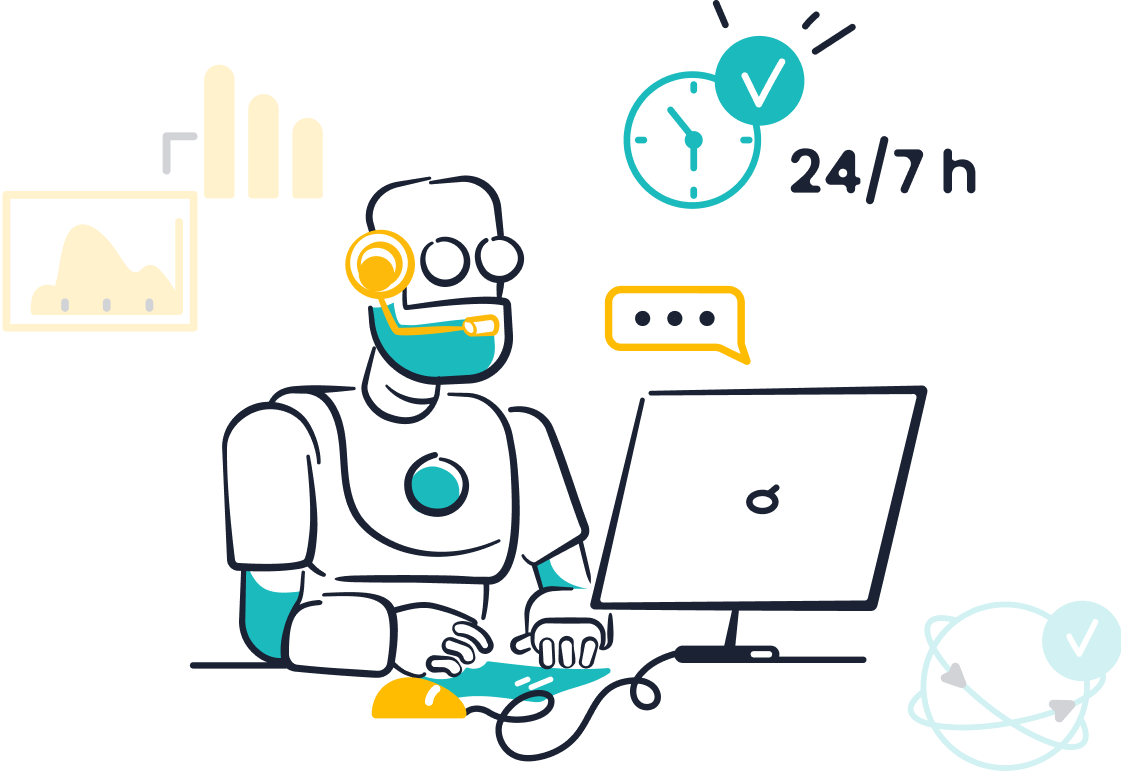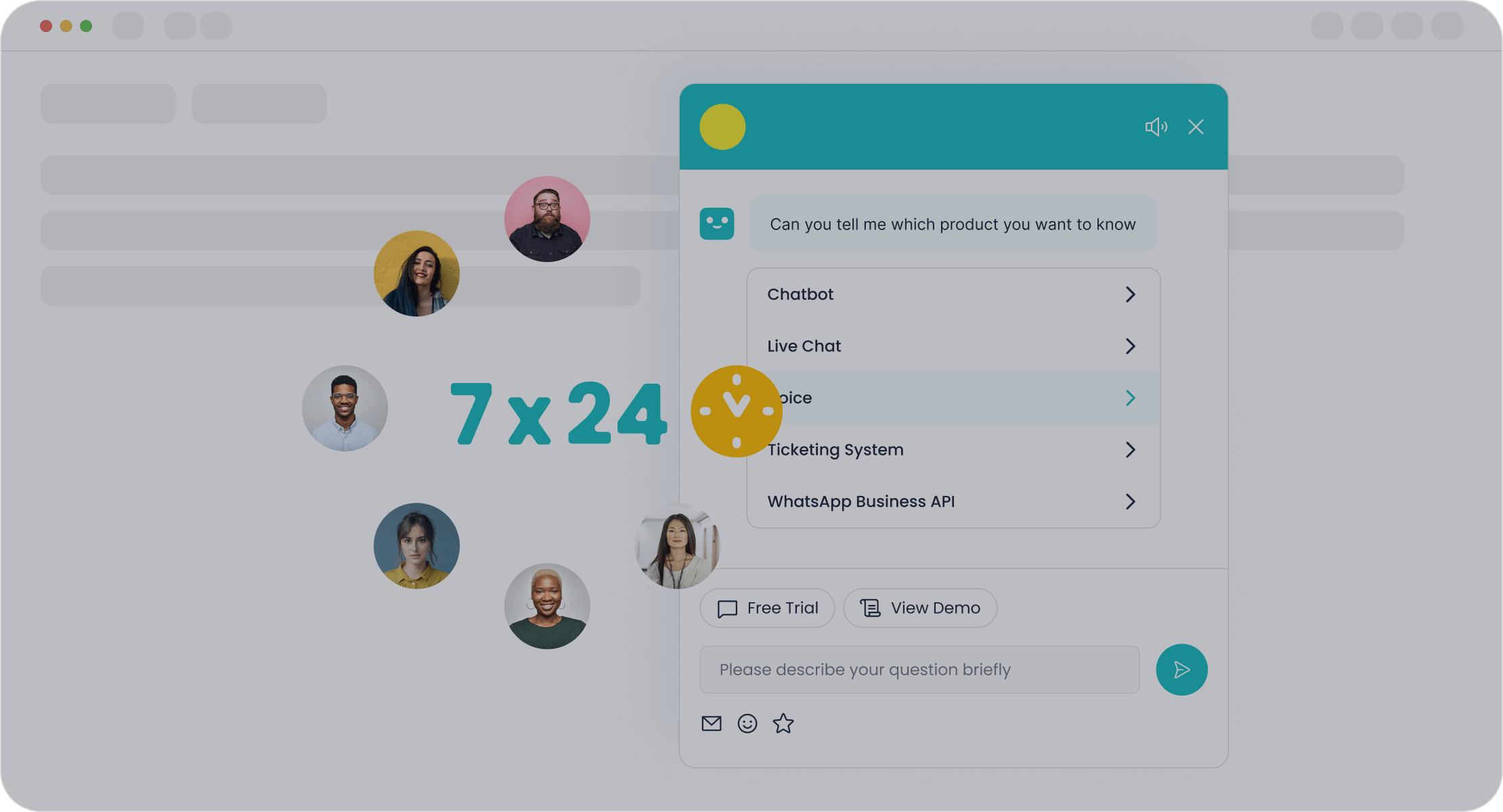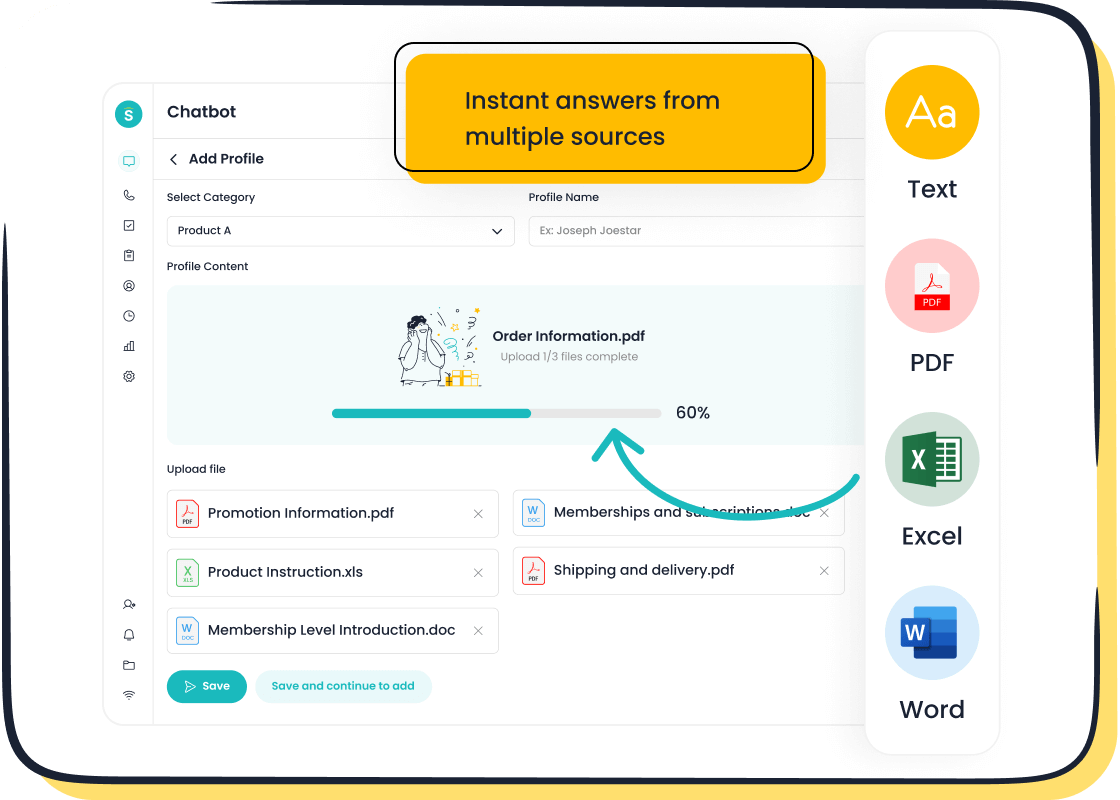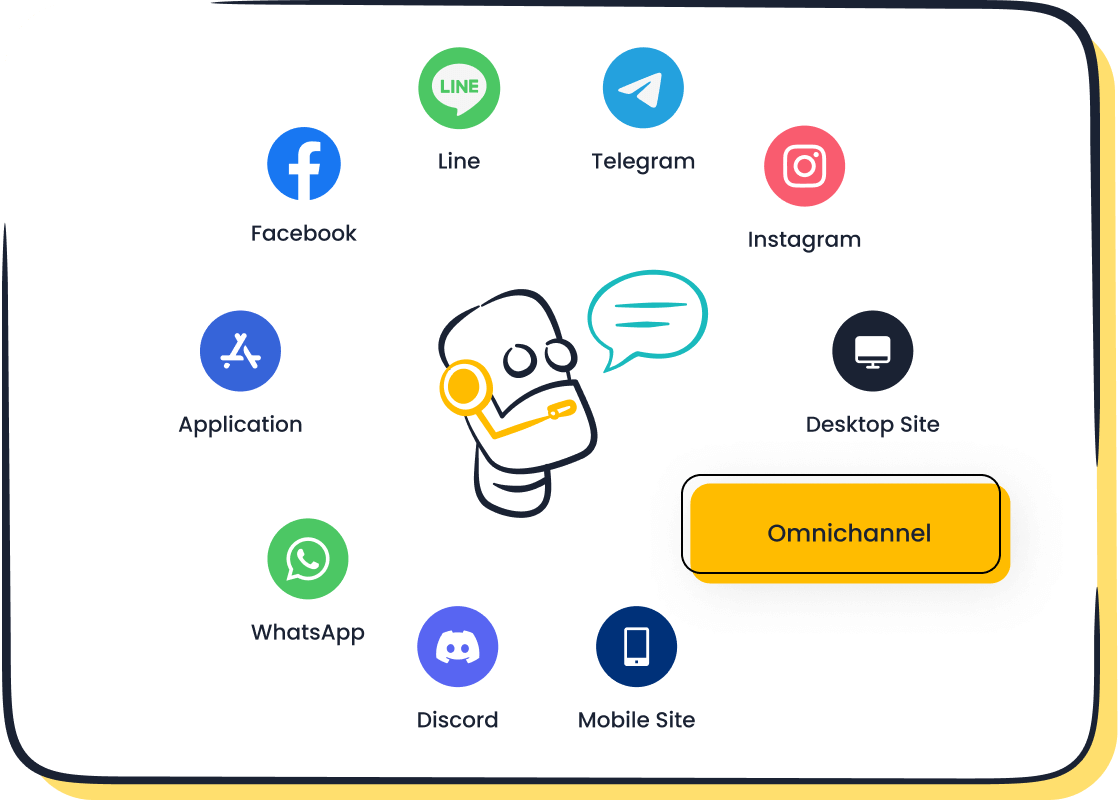Top strategies for client support definition in 2025

In 2025, the client support definition will shape the success of your business. Why? Because customers now expect more than just solutions—they demand exceptional client assistance tailored specifically to their needs. Did you know that 91% of customers are more likely to make repeat purchases after an outstanding service experience? This is why having a robust customer support strategy is essential. Industry leaders like Apple and Shopify set the standard by delivering personalized customer service and ensuring 24/7 availability. To stay competitive, you need to customize the customer experience, actively gather and act on feedback, and embrace innovative customer engagement strategies. Tools like Sobot’s AI Chatbot empower businesses to achieve unparalleled customer service excellence while fostering long-term customer loyalty.
Defining excellent client support in 2025
The evolution of client support definition
Customer support has come a long way from being a reactive service to becoming a proactive, customer-centric strategy. In the past, businesses focused on resolving issues as they arose. Today, you’re expected to anticipate customer needs and deliver solutions before problems even surface. For instance, 93% of customer service teams agree that expectations are higher than ever. This shift has been driven by advancements in technology, such as AI and automation, and the growing demand for personalization at every touchpoint.
Take a look at how the landscape has evolved:
| Statistic | Description |
|---|---|
| Customer Satisfaction Index | Dropped to 73.4 in Q4 2022, reflecting challenges during the pandemic. |
| Personalized Experiences | 68% of consumers now expect tailored interactions in customer support. |
| Cloud Contact Centers | 75% of businesses plan to adopt cloud-based solutions by 2024. |
| Revenue from Personalization | Companies excelling in personalization see 40% higher revenue. |
This evolution highlights the importance of embracing AI and automation to meet rising expectations while maintaining a customer-centric culture.
Key standards for excellent customer service
What defines great customer service in 2025? It’s all about setting benchmarks that prioritize customer satisfaction and retention. Here are some key standards:
- Customer Satisfaction Score (CSAT): Measures how happy customers are with your service. High scores reflect great customer service.
- First Contact Resolution (FCR): Resolving issues in the first interaction reduces customer effort and boosts satisfaction.
- Net Promoter Score (NPS): Tracks customer loyalty and their likelihood to recommend your business.

For example, Sobot’s AI Chatbot helps businesses achieve a 70% productivity boost by automating repetitive tasks, ensuring faster resolutions. This not only improves satisfaction but also strengthens customer retention.
The role of customer experience in defining support success
Customer experience is the heart of excellent customer service. Metrics like Average Resolution Time (ART) and First Response Time (FRT) directly impact how customers perceive your support. Faster response times and efficient resolutions lead to higher satisfaction and loyalty. Did you know that businesses with high personalization see 40% more revenue? By focusing on personalization at every touchpoint, you can create memorable experiences that keep customers coming back.
Sobot’s omnichannel solutions make this easier by unifying customer interactions across platforms. Whether it’s through live chat, voice calls, or WhatsApp, you can deliver seamless and personalized support. This approach not only enhances customer satisfaction but also fosters a customer-centric culture that drives long-term retention.

Leveraging technology to enhance client support

The impact of AI-powered tools like Sobot Chatbot

AI-powered tools are revolutionizing customer support, and chatbots are leading the charge. Imagine having a virtual assistant that works 24/7, answering questions, solving problems, and even boosting conversions. That’s exactly what tools like Sobot’s AI Chatbot do. They handle routine inquiries, provide instant responses, and reduce the need for additional staff. This means your team can focus on more complex issues, delivering good customer service where it matters most.
Take Delta Airlines, for example. Their "Ask Delta" chatbot significantly reduced wait times by streamlining interactions. Similarly, Maruti Suzuki’s chatbot engaged over 400,000 users, handling millions of queries and even facilitating bookings. Sobot’s AI Chatbot achieves similar results, with over 80% of its answers being accurate and a 95% customer satisfaction rate. It’s not just about efficiency—it’s about creating a seamless journey for your customers.
| Industry | Company | Automation Impact | Productivity Gain |
|---|---|---|---|
| E-commerce | ShopSmart | 40% reduction in response times | 25% increase in order processing |
| Healthcare | MedCare | 35% improvement in resolution rates | 30% reduction in support queries |
| Financial Services | BankEase | 50% faster issue resolution | 20% boost in customer satisfaction |
Predictive analytics for proactive customer service
Wouldn’t it be great to solve problems before they even arise? Predictive analytics makes this possible. By analyzing customer behavior, you can anticipate needs and take action proactively. For example, you might suggest a product before a customer even searches for it. This approach not only enhances satisfaction but also builds loyalty.
Proactive customer service is all about staying ahead. Instead of waiting for complaints, you can use AI-driven analytics to forecast trends and identify potential issues early. This means fewer disruptions and a smoother journey for your customers. Businesses that adopt predictive analytics often see higher retention rates and improved operational efficiency. It’s a game-changer for delivering good customer service.
Automation and its role in streamlining support processes
Automation is the backbone of modern customer service. It simplifies workflows, reduces manual tasks, and ensures consistent execution. With tools like Sobot’s omnichannel solutions, you can unify customer interactions across platforms, making it easier to manage inquiries. Automation also empowers your team by handling repetitive tasks, allowing them to focus on meaningful interactions.
| Evidence Description | Key Benefits |
|---|---|
| IT workflow automation enhances efficiency | Optimizes routine tasks, reduces manual work |
| AI in customer service automates experiences | Streamlines workflows, saves time and money |
| AI reduces workload for customer service teams | Frees agents to focus on complex issues |
| AI provides instant support | Guides agents for faster resolutions |
By integrating automation into your customer support strategy, you’re not just saving time—you’re improving the overall customer journey. It’s about delivering faster, more personalized service while keeping costs in check.
Personalization as the cornerstone of client support
Using data to deliver tailored customer experiences
Personalization starts with understanding your customers. By leveraging data, you can craft experiences that feel unique to each individual. For instance, mapping the customer journey helps you identify pain points and key interactions that shape their overall experience. Advanced tools like predictive analytics allow you to anticipate customer needs, such as spotting trends in purchasing patterns or churn rates. This proactive approach not only improves satisfaction but also strengthens loyalty.

Imagine using customer segmentation to send targeted messages that align with specific interests. For example, Sobot’s omnichannel solutions unify customer data across platforms, enabling you to deliver consistent and personalized interactions. Real-time feedback further refines your strategies, ensuring every touchpoint resonates with your audience. Companies that embrace data-driven personalization often see an 80% performance uplift, proving its value in modern customer support.
Balancing personalization with data privacy
While personalization is powerful, it comes with a responsibility to protect customer data. Consumers are increasingly aware of privacy concerns, with 97% expressing worry about how their information is used. This creates a delicate balance—you must deliver tailored experiences without compromising trust. Transparency is key. Clearly communicate how you collect and use data, and ensure compliance with regulations like GDPR.
Sobot’s solutions prioritize data security, offering features that safeguard customer information while enabling personalized service. By respecting privacy, you can build trust and foster long-term relationships.
Building trust and loyalty through personalized interactions
Personalized interactions make customers feel valued. Recognition, relevance, and emotional connection are the pillars of trust and loyalty. For example, 80% of consumers are more likely to buy from brands that offer tailored experiences. Sobot’s AI Chatbot excels here, providing real-time, customized responses that enhance the customer journey.
When you prioritize personalization, you’re not just delivering good customer service—you’re creating memorable experiences that drive loyalty. Businesses excelling in this area often see 40% higher revenue, proving that personalization isn’t just a strategy; it’s a cornerstone of exceptional customer support.
Empowering employees to deliver excellent customer service
Training and upskilling for modern client support roles
Your employees are the backbone of your customer service efforts. To deliver exceptional customer service, they need the right tools and training. In fact, 74% of workers are eager to learn new skills to stay employable, and 86% of millennials would remain loyal to companies that offer training opportunities. This shows how critical upskilling is for retaining talent and improving customer support.
Investing in professional development not only boosts employee confidence but also enhances their ability to handle complex customer interactions. For example, Sobot provides training resources for its omnichannel solutions, ensuring your team can seamlessly manage customer inquiries across platforms. By equipping your employees with the latest skills, you’re setting them up to deliver excellent customer service.
| Statistic | Description |
|---|---|
| 76% | Millennials highly value professional development. |
| 30-50% | Retention rates increase with strong learning cultures. |

Encouraging autonomy and decision-making in support teams
Empowering your team to make decisions independently can transform your customer service. When employees have the freedom to act, they respond faster and more effectively. Organizations with high autonomy report a 30% increase in job satisfaction, and 71% of employees feel more engaged when they control their roles.
For instance, companies like Tesla thrive by giving teams the autonomy to experiment and innovate. Similarly, Sobot’s AI-driven tools reduce repetitive tasks, allowing your team to focus on meaningful interactions. This balance of autonomy and support fosters creativity and ensures good customer service.
| Benefit | Description |
|---|---|
| Faster Decision-Making | No waiting on approvals for routine decisions. |
| Higher Engagement & Job Satisfaction | Employees thrive when they have a say in their work. |
| More Innovation & Problem-Solving | Without rigid oversight, creativity flourishes. |
Fostering a culture of empathy and client-centricity
Empathy is the secret ingredient to exceptional customer service. When your team genuinely understands and values customer needs, it creates a lasting impression. Engaged employees, who feel connected to their work, lead to 10% higher customer loyalty. A customer-centric culture also improves retention and conversion rates.
You can foster this culture by encouraging your team to view every interaction as an opportunity to build trust. Sobot’s omnichannel solutions help by providing a unified view of customer data, enabling personalized and empathetic responses. When your team feels supported and empowered, they’ll naturally deliver good customer service that leaves customers delighted.
- Empathetic interactions enhance customer satisfaction.
- Valuing every customer interaction leads to better retention.
Practical tips for implementing these strategies
Conducting regular client feedback surveys
Listening to your customers is the foundation of good customer service. Regular feedback surveys help you understand what’s working and what needs improvement. Did you know that 62% of customers feel brands don’t care enough about them? Ignoring feedback can lead to lost revenue and a damaged reputation. On the flip side, satisfied customers often share their positive experiences with nine others, boosting your brand image.
To make the most of surveys, keep them short and focused. Ask questions about specific interactions or overall satisfaction. For example, you could use Net Promoter Score (NPS) to gauge loyalty or Customer Satisfaction Score (CSAT) to measure happiness. Tools like Sobot’s omnichannel solutions make it easy to collect and analyze feedback across multiple channels. By acting on this data, you can refine your customer service approach and build stronger relationships.
Investing in tools like Sobot’s omnichannel solutions

Technology plays a huge role in delivering good customer service. Investing in tools like Sobot’s omnichannel solutions can transform how you interact with clients. These tools unify customer interactions across platforms, ensuring seamless communication. For instance, Sobot’s AI-powered chatbot provides instant responses, reducing inbound discussion volume by 20% and achieving a 95% customer satisfaction rate.
Here’s how Sobot’s solutions stand out:
| Metric | Value |
|---|---|
| Positive feedback rate | 96%+ |
| Correct answers provided by AI | 80% |
| Customer happiness rate | 99% |
| Problem resolution rate | 85% |
By automating repetitive tasks, these tools free up your team to focus on complex issues. This not only improves efficiency but also enhances the overall customer experience.

Aligning support strategies with business objectives
Your customer service strategy should align with your business goals. Research shows that strategic alignment accounts for up to 80% of performance differences between organizations. When your support team understands the company’s objectives, they can deliver service that drives growth.
Start by identifying key performance indicators (KPIs) that link customer service to business outcomes. For example, reducing first response time can lead to higher customer retention. A study found that cutting response time from six hours to two hours increased positive feedback significantly. Tools like Sobot’s omnichannel solutions help you track these metrics, ensuring your strategy stays on course.
By aligning your support efforts with your goals, you create a cohesive approach that benefits both your customers and your business.
Future trends to anticipate in client support

The rise of hyper-personalized customer experiences
Hyper-personalization is no longer a luxury—it’s a necessity. Customers now expect services tailored to their unique preferences. Imagine a hotel knowing you’ll arrive late and offering a midnight snack. That’s the power of predictive problem-solving and intelligent loyalty programs.
Geoffrey Ryskamp, an executive advisor at Medallia, predicts that by 2025, automated personalized services will dominate. He highlights how AI can anticipate customer needs, creating seamless experiences.
AI plays a crucial role here. It collects data across the customer journey and uses machine learning to predict behaviors. For example, Sobot’s omnichannel solutions unify customer data, enabling you to deliver hyper-personalized interactions. This approach not only improves satisfaction but also builds loyalty in a competitive market.
Increased reliance on AI and machine learning

AI is transforming customer service. By 2025, Servion predicts 95% of customer interactions will involve AI. Chatbots, like Sobot’s AI Chatbot, are already automating routine tasks, reducing costs, and enhancing efficiency.
| Statistic/Prediction | Description |
|---|---|
| 95% of interactions | AI will handle most customer interactions by 2025. |
| 80% chatbot adoption | Chatbots will become standard in customer service. |
| $1 billion revenue | Netflix generates this annually through AI recommendations. |
AI doesn’t just save time—it creates better experiences. Starbucks uses predictive personalization to tailor promotions, while Sobot’s chatbot boosts productivity by 70%, ensuring good customer service every time.
Sustainability as a key factor in customer service
Sustainability is reshaping how businesses approach customer service. Customers increasingly prefer brands that prioritize environmental and social responsibility.
| Metric Type | Description |
|---|---|
| Environmental Metrics | Reduced electricity use, lower carbon emissions, and waste diversion. |
| Social Metrics | Focus on diversity, inclusion, and employee well-being. |
| Governance Metrics | Policies on company values and resilience plans. |
Sobot’s solutions align with these values by optimizing resources and reducing operational waste. As sustainability becomes a key factor, adopting eco-friendly practices will not only attract customers but also strengthen your brand reputation.

Defining client support in 2025 means embracing proactive service, personalization, and advanced tools. Customers expect seamless omnichannel experiences and tailored interactions. Did you know 71% of customers demand personalized service? Tools like Sobot’s AI Chatbot and omnichannel solutions help you meet these expectations, reduce inquiries, and boost retention. Adapt, innovate, and stay client-focused!
FAQ
What makes Sobot’s AI Chatbot stand out?
Sobot’s AI Chatbot operates 24/7, handles routine queries, and boosts productivity by 70%. Its multilingual support and no-code setup make it user-friendly and efficient. Learn more.
How does Sobot’s omnichannel solution improve customer support?
It unifies customer interactions across platforms like WhatsApp and email. This ensures seamless communication, reduces response times, and enhances satisfaction by 30%. Explore omnichannel.
Why is personalization important in client support?
Personalization builds trust and loyalty. For example, 80% of customers prefer brands offering tailored experiences. Sobot’s tools help you deliver hyper-personalized interactions effortlessly.
Tip: Use Sobot’s solutions to create memorable customer experiences and stay ahead in 2025!
See Also
Enhance SaaS Assistance Using Effective Live Chat Techniques
Ten Essential Steps for Deploying Omnichannel Support Systems
Ten Helpful Tips for Selecting Social Media Support Tools
AI-Driven Customer Service Agents Transform Support Experience
